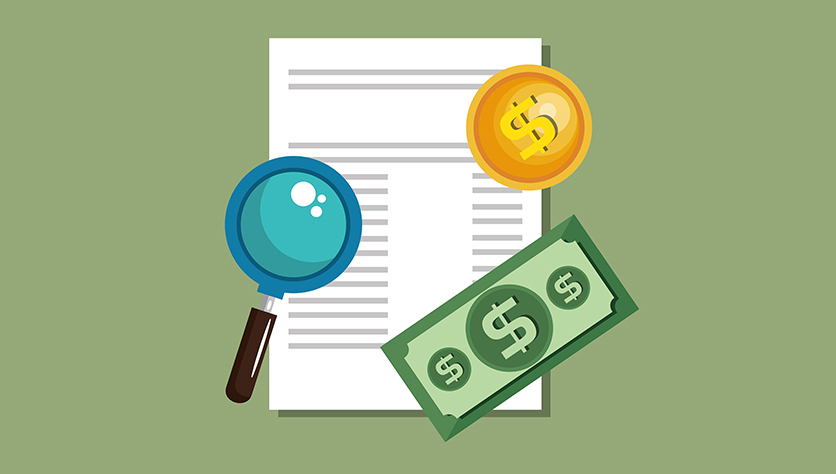Recovering a debt can be a challenging and frustrating process, but understanding your rights and the legal options available can make a significant difference. In Canada, there are several steps you can take to recover a debt, whether you are an individual or a business trying to collect money owed to you. From negotiating with the debtor to pursuing legal action, this guide will outline the key methods and legal remedies to help you recover a debt.
1. Understand the Types of Debt and Their Recovery Process
The first step in recovering a debt is understanding the type of debt you are trying to collect. In Canada, debts can include:
- Personal Loans: Money borrowed from an individual or financial institution.
- Business Debts: Money owed by businesses to other businesses or individuals.
- Credit Card Debts: Unpaid credit card balances.
- Unpaid Invoices: Amounts owed by clients or customers for goods or services provided.
- Unpaid Rent: Money owed by tenants for rental property.
The recovery process can vary depending on the type of debt and whether the debtor is cooperative. Generally, you can either attempt to settle the debt directly or take formal legal action to recover it.
2. Communicate with the Debtor
Before taking any legal action, it’s essential to make an effort to communicate with the debtor. Most people or businesses are more likely to pay if they are reminded of their obligation. Follow these steps when approaching the debtor:
- Contact the Debtor: Start by sending a polite reminder, either in writing or by phone, asking them to pay the debt. Sometimes, debtors may simply forget or face temporary financial difficulties.
- Negotiation: If the debtor is unable to pay the full amount, negotiate a payment plan. Offer flexible terms, such as allowing the debtor to pay in installments.
- Document Communication: Keep a record of all communications, including emails, letters, and phone calls. This documentation may be important if you need to escalate the matter later.
3. Send a Formal Demand Letter
If informal communication doesn’t result in payment, the next step is to send a formal demand letter. A demand letter is a written request for payment that outlines the amount owed, any late fees, and a deadline for repayment. The letter should be professional and clear, and it may state the legal actions you will take if the debt is not paid.
A demand letter typically includes:
- The amount of debt owed
- The due date of the debt
- A request for immediate payment or a payment plan
- Consequences for failing to pay (such as legal action)
Sending a demand letter is often an effective way to get the debtor’s attention and encourage them to make the payment. It also serves as official documentation that you’ve made an effort to resolve the issue amicably before pursuing legal action.
4. Use a Debt Collection Agency
If the debtor fails to respond to the demand letter or refuses to pay, you may consider hiring a debt collection agency. Collection agencies specialize in recovering debts and have the resources to track down debtors and negotiate payment plans.
In Canada, debt collection agencies must follow strict rules set out by the Collection Agencies Act (varies by province). These rules ensure that collection practices are fair and ethical. Agencies typically charge a fee, either as a percentage of the recovered debt or a flat fee, but they can be a powerful tool for recovering money.
However, before turning over the debt to a collection agency, ensure that you have exhausted all other avenues, such as personal contact and the demand letter.
5. Consider Mediation or Alternative Dispute Resolution (ADR)
Mediation is a form of dispute resolution where a neutral third party helps both the creditor and debtor reach a mutually agreeable solution. Mediation can be faster and less expensive than going to court. It allows both parties to discuss their concerns and come to an agreement without the need for litigation.
If the debtor is unwilling to pay, you can suggest mediation or other forms of Alternative Dispute Resolution (ADR). In some cases, ADR can lead to an agreement to settle the debt without going through formal court procedures.
6. Small Claims Court for Unpaid Debts
If the amount owed is within the limits set by your province’s small claims court, you may want to consider filing a claim in small claims court. This is a cost-effective way to recover smaller debts (typically up to $35,000, depending on the province). The process is generally faster and more straightforward than going through the regular court system.
Here are the basic steps to take when pursuing a debt through small claims court:
- File a Claim: Begin by filing a statement of claim with your local small claims court. You will need to provide details about the debt, any communication you’ve had with the debtor, and evidence of the debt.
- Pay the Filing Fee: There is a small fee to file your claim, which varies by province.
- Court Hearing: Both you and the debtor will be required to appear in court to present your case. The judge will review the evidence and make a ruling on whether the debtor must pay the debt.
- Enforcement of Judgment: If the court rules in your favor, the debtor may be required to pay the amount owed, along with any court costs. If the debtor does not comply, you can request enforcement measures such as garnishing wages or seizing assets.
7. Filing a Lawsuit for Larger Debts
If the debt exceeds the small claims court limit or if the matter is more complex, you may need to file a lawsuit in regular court. This process is more formal and costly, but it can be necessary for large debts or when other methods fail. Here’s what you need to do:
- Consult a Lawyer: Hiring a lawyer is essential when pursuing larger debts through the courts. A lawyer will help you navigate the legal system and represent you in court.
- File a Statement of Claim: You will need to file a statement of claim in the appropriate court, outlining the amount owed and the basis for your claim.
- Attend Court Hearings: The case will go through several stages, including pre-trial conferences and hearings. You will need to present evidence and argue your case before a judge.
- Obtain a Judgment: If the court rules in your favor, you will receive a judgment that orders the debtor to pay the debt.
8. Debt Recovery Options After a Judgment
If you obtain a judgment in your favor and the debtor still refuses to pay, you have several options to recover the debt. These include:
- Wage Garnishment: This involves having a portion of the debtor’s wages deducted directly by their employer and paid to you.
- Seizing Assets: If the debtor has valuable assets, the court may allow you to seize them to cover the debt.
- Bank Account Garnishment: You can request that the debtor’s bank account be frozen and that the owed amount be taken directly from the account.
9. What Happens if the Debtor Declares Bankruptcy?
If the debtor declares bankruptcy, it may be more difficult to recover the debt. In Canada, certain debts are dischargeable in bankruptcy, but others, such as court fines or child support payments, are not. If the debtor files for bankruptcy, you may still be able to file a claim in the bankruptcy proceeding, but there’s no guarantee you will receive payment.
10. Protecting Yourself from Future Debt Issues
To minimize the risk of facing unpaid debts in the future, take proactive measures:
- Use Contracts: Always have a written contract for loans or business transactions outlining payment terms, deadlines, and consequences for non-payment.
- Get Collateral: For large loans, consider securing the debt with collateral.
- Vet Debtors Carefully: If you’re lending money or doing business, make sure to vet the other party’s financial situation and reputation.
- Monitor Payments: Stay on top of any ongoing payments, and act quickly if a payment is missed.
11. Conclusion
Recovering a debt in Canada can be a long and complex process, but with the right legal approach, it is possible to reclaim what’s owed to you. Whether through negotiation, mediation, small claims court, or a larger lawsuit, you have several options for recovery. The key is to understand the legal steps and choose the right method based on the situation. By acting swiftly and using the proper legal channels, you can protect your financial interests and ensure that you’re compensated for the money you’re owed.
Useful information

Télétravail au Canada en 2025 : droits des employés et obligations des employeurs
Le télétravail est devenu une composante essentielle du monde du travail au Canada. Depuis la pandémie de COVID-19, ce mode d’organisation s’est institutionnalisé, incitant les entreprises et les gouvernements à repenser la législation, la gestion RH et l’équilibre travail-vie privée. Selon Statistique Canada, près de 30 % des Canadiens travaillaient régulièrement à distance en 2024, […]

What to Do If You Become a Victim of Fraud in Canada?
Fraud is a growing concern in Canada, with thousands of people affected each year. Whether you’ve been targeted by an online scam, identity theft, or a financial scheme, it’s essential to act quickly to minimize the damage and protect your legal rights. Fraud Statistics in Canada (2023) Type of Fraud Reported Cases Estimated Losses Annual […]

How to Hold Someone Accountable for Defamation in Canada
Defamation is a serious issue that can cause lasting damage to an individual’s personal and professional reputation. In Canada, individuals who have been defamed have legal recourse to hold those responsible accountable. Defamation occurs when false statements are made about someone that harm their reputation, either through slander (spoken) or libel (written). If you are […]

How to Legally Recover a Debt in Canada
Recovering a debt can be a challenging and frustrating process, but understanding your rights and the legal options available can make a significant difference. In Canada, there are several steps you can take to recover a debt, whether you are an individual or a business trying to collect money owed to you. From negotiating with […]

What to Do After a Car Accident in Canada: A Step-by-Step Guide
Car accidents, or as commonly referred to in Canada, “collisions” or “car accidents,” are an unfortunate reality on the road. In the event of a car accident, it’s important to stay calm and know exactly what steps to take. Whether the crash is minor or more serious, taking the right actions can help protect your […]

Unlawful Termination and Reinstatement in Canada: Your Rights
Unlawful termination is one of the most stressful and emotionally challenging experiences a worker can face. Whether it’s because of discrimination, retaliation, or breach of contract, the impact can be profound. Fortunately, in Canada, employees are protected by robust labor laws designed to prevent unlawful dismissal and provide options for reinstatement or compensation. If you […]
